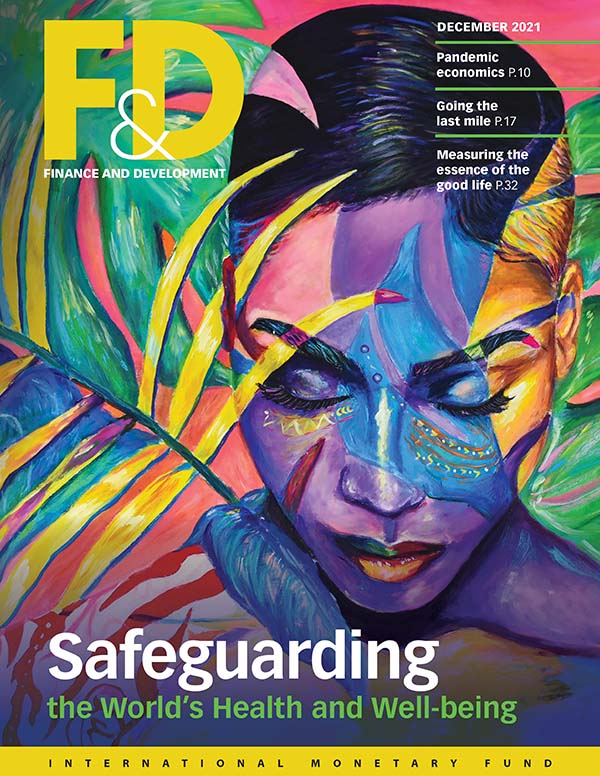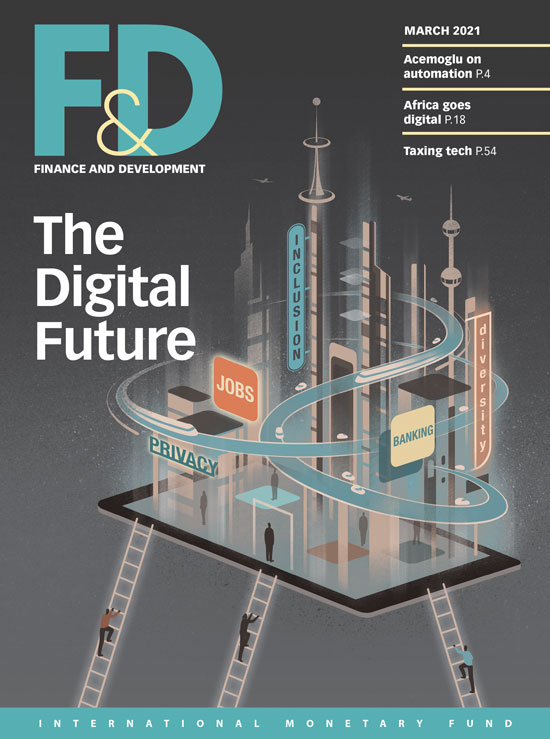Emerging markets can not only reclaim their hard-won economic gains, they can do even better than before the pandemic
We focus this issue on the road ahead for emerging markets, a label frequently applied to economies in the middle—neither advanced nor low-income. Because of their growing systemic relevance, this group of countries helps anchor global stability. Yet, as we drill down and define their characteristics, we find a widely diverse set of economies of varying sizes and growth rates that face different prospects, priorities, and challenges.
Some, like China, have managed to emerge quickly from the present crisis. Others may struggle for years to deal with the pandemic’s aftereffects.
Amid a multispeed economic recovery—including within countries and across sectors, age groups, genders, and skill levels—this issue explores several cross-cutting themes for emerging markets. The IMF’s Rupa Duttagupta and Ceyla Pazarbasioglu take stock, with a focus on debt, economic policy trade-offs, and priorities for stronger growth. Two leading investors, Richard House and David Lubin, discuss how emerging market assets have fared during the pandemic and why they are unlikely to suffer systemic crises as in the 1980s and 1990s. Şebnem Kalemli-Özcan, in contrast, sees the potential for greater turbulence as US interest rates rise. Francisco Ferreira shows that the pandemic’s effect on inequality is manifested in counterintuitive ways, depending on how you measure it. And 20 years after coining the acronym “BRICs,” Jim O’Neill reconsiders the diverging fortunes of Brazil, Russia, India, and China.
While this crisis will leave scars, it would be inaccurate to see only adversity ahead. Emerging markets can not only reclaim their hard-won economic gains, but do even better than before the pandemic. Obviously, a first step depends on producing and distributing vaccines to end this pandemic. Beyond the immediate recovery, emerging market economies' can achieve their growth potential through well-calibrated economic policies and strategies that improve access to health care and education, support and retrain displaced workers, and strengthen public investment in green projects and digital infrastructure. The goal is to build more inclusive economies that benefit everyone, while ensuring macroeconomic stability.
As in a chess game, every move by leaders and policymakers has consequences. Let them be the right ones.
Opinions expressed in articles and other materials are those of the authors; they do not necessarily represent the views of the IMF and its Executive Board, or IMF policy.









